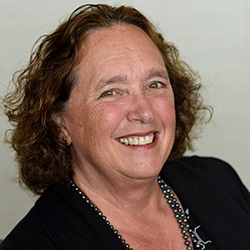In This Article
Related Degrees & Careers
- Associate in Psychology
- Associate in Human Services
- Associate in Social Work
- Associate in Counseling
- Becoming a Social Worker
- Becoming a Social Psychologist
- Becoming a Psychiatric Technician
- Becoming a Human Services Worker
Advancing Your Career
How to become a Psychiatric Nurse

You won’t usually find psychiatric nurses (also referred to as psychiatric-mental health or PMH nurses) in the emergency or operating rooms—instead, they’re working closely with patients to solve complex psychological problems and help improve patients’ quality of life, no matter the mental health challenge they may be struggling with.
What is a psychiatric nurse?
Psychiatric nurses are licensed registered nurses (RNs) that specialize in treating patients with a range of behavioral and mental health challenges. Their expertise situates them at the intersection of medicine and mental health counseling.
Many nurses that specialize in psychiatric-mental health may choose to advance their education to become advanced practice registered nurses (APRNs), which expands their responsibilities and scope of practice. According to the American Psychiatric Nurses Association (APNA), psychiatric-mental health nurses and APRNs make up the second-largest group of behavioral health professionals in the United States.
The field of psychiatric nursing isn’t for everybody, though. Because there are so many ways to measure and achieve mental wellness, psychiatric nurses aren’t concerned with a cure as much as they are on a journey of helping patients learn how to weather life’s spectrum of ups and downs.
“[Psychiatric nurses] have to be comfortable living in the gray areas,” said Dr. Tari Dilks, professor and department head of graduate nursing at McNeese State University.
If forming close relationships with patients and helping them manage or overcome mental health challenges sounds appealing, the opportunity in this field is ripe. APNA says that psychiatric nurses tend to enjoy strong compensation and career flexibility due to high demand for their services.
6 steps to becoming a psychiatric nurse
Earn a nursing degree.

In order to become a registered nurse (RN), you must graduate from an accredited nursing program. Most new nurses get either a two-year associate degrees in nursing (ADN) or a four-year bachelor’s of science in nursing (BSN), though other nursing programs like an accelerated bachelor’s of science in nursing (ABSN) and LPN-to-RN degrees are also acceptable paths to licensure.
Apply for an RN license.

As you approach graduation or after you’ve graduated, you must apply for an RN license in the state that you live. Be sure to check with your state’s nursing regulatory body (NRB) to see if they have any additional steps you must complete to apply for a license, which may include background checks or state-specific jurisprudence exams.
Take and pass the NCLEX-RN exam.

Passing the NCLEX-RN exam is necessary to be eligible for RN licensure. You must register for the exam through Pearson Vue, who will issue you an authorization to test (ATT) once you’ve completed all necessary licensure steps through your state’s NRB. The number of questions on the NCLEX exam varies by year, and is graded on a pass/fail basis.
Find a job and work in your specialty.

Your state should issue you an RN license after passing the NCLEX exam. If you haven’t already, it’s time to find a nursing job that suits your individual needs and goals. To be eligible for board certification in psychiatric-mental health nursing through the American Nurses Credentialling Center (ANCC), you must practice as a full-time RN for two years, accrue at least 2000 hours of clinical practice in psychiatric-mental health (PMH) nursing within three years and complete 30 hours of continuing education in PMH nursing within three years.
Pass the PMH-BC exam.

To take the psych nurse career path, once you’re eligible for board certification, you can register for the PMH board certification exam through the ANCC. Passing this exam makes you board certified in your specialty, which could open the door to more opportunities in psychiatric nursing.
Consider advancing your education.

If you want to take your career a step further and become an advanced practice registered nurse (APRN), you’ll need some additional education. APRNs must have at least a master of science in nursing (MSN) or a doctor of nursing practice (DNP) degree. Becoming an APRN expands your scope of practice and responsibilities and could lead to more nursing leadership positions and a higher salary.
What does a psychiatric nurse do?
Psychiatric nurses treat patients with behavioral and mental health challenges under the supervision of APRNs and/or medical doctors such as psychiatrists. Psychiatric nurses approach mental health as a vital component of overall health and wellness. Some of their job duties include, but are not limited to:
- Conduct patient intake, evaluation and triage
- Carry out and monitor psychobiological treatment plans put forth by the treating provider
- Educate patients, families and communities on self-care and other best practices in mental health upkeep
- Practice crisis intervention and rehabilitation
- Work on an interdisciplinary healthcare team
- Provide and/or connect patients with case management
APRNs can do all of the above and have additional job duties such as:
- Conduct psychotherapy for individuals or groups
- Prescribe medication
- Diagnose, treat and monitor mental health and substance use disorders
- Order, perform and interpret diagnostic tests
- Refer patients to other health care professionals
Who do psychiatric nurses treat?
Psychiatric nurses treat just about anyone struggling with a mental health challenge. The populations or conditions that you work often with may depend on your work environment and particular role. According to APNA, some of the types of people you may work with include:
Children exposed to traumatic and adverse events
Teens and adults experiencing a mental health crisis
Soldiers returning from combat operations
Older adults struggling with Alzheimer’s and dementia
People confronting anxiety, depression and/or suicide
Anyone facing opioid, alcohol or other substance use disorders
Where do psychiatric nurses work?
“As a psych nurse practitioner, there really are so many settings to work in,” said Dr. Sara Jones, an assistant professor of nursing at McNeese.
Psychiatric nurses work in just about any setting you would find other kinds of nurses, such as:
- State, local and private hospitals
- Outpatient clinics
- Rehabilitation facilities
- Residential living facilities
- Prisons
- Schools
- Public health facilities
- Private practice
Dilks said she sometimes thinks of nursing environments in terms of inpatient care versus outpatient care.
“In my mind, inpatient is quick and dirty. How do I help them get on a medication so that they can function well enough to go back home? Relationship is not as much an issue,” Dilks said. “Then there are outpatient practices that both Sara and I have done, and it’s all about the relationship [with the patient]. If you don’t have that good relationship, if you’re not listening, if you’re not working with the patient, they don’t come back.”
Requirements to become a psychiatric nurse
The first step to becoming a psychiatric nurse is earning a registered nurse (RN) license. Although the licensure process can vary a bit between states, obtaining an RN license consists of a few primary components:
- Graduate from a nursing program
- Apply for a license with your state’s nursing regulatory body (NRB)
- Pass the NCLEX-RN exam
After becoming an RN, you can start working in psychiatric-mental health settings to build up your experience and prepare for board certification later in your career.
Choosing a degree
As far as psychiatric nurse schooling goes, there are several types of degrees that you can earn that prepare you for RN licensure. The degree that is best for you depends on how much time you can commit to your education, your financial situation and any existing education you may already have.
Associate degrees in nursing (ADNs) are two-year programs that prepare students to take the NCLEX-RN exam. Associate degrees are usually completed in about two years, which means they can get you into the workforce sooner and typically cost less than longer programs. Although some employers may prefer or even require their nurses to have at least a four-year degree, associate degrees can still be a great option especially for people who live in more rural areas where four-year nursing programs are sparse.
A bachelor’s of science in nursing (BSN) program typically takes about four years to complete. This makes these degrees more expensive but also more coveted by some employers. Their nursing curriculum is practically the same as associate degree programs (both programs prepare students to take the same exam) with the addition of liberal arts classes for a more well-rounded degree.
Licensed practical or vocational nurses (LPNs/LVNs) that want to become RNs may choose to enroll in LPN-to-RN programs that build upon their existing education.
If you already have a degree in another subject, an accelerated bachelor’s of science in nursing (ABSN) may be best for you. These programs take into account all the classes you already took and allows you to complete a BSN in a shorter amount of time, usually about 12-18 months.
If you decide to you want to become an APRN and earn a graduate-level degree, Dilks recommends that you get some experience in the field first before jumping straight into a graduate program. This allows you to understand what working in psychiatric nursing is actually like and gives you time to hone the communication skills that are paramount to succeeding in the field.
“I really recommend that they do at least have some experience. Even if it’s six months before you commit to a graduate program, at least you know that you like the population and you like the job,” Jones said.
Getting licensed as a psych nurse
After you graduate from a nursing program, you have to pass the NCLEX-RN exam to become a licensed RN. In most places, you should apply for a license through your state’s NRB first and then register for the exam through Pearson Vue. Once they verify that your application for a license is pending—and that you’ve completed any other necessary steps required by your state’s NRB—you’ll receive an authorization to test (ATT) which gives you a window of time to take the exam.
After your state’s NRB verifies that you’ve passed the NCLEX-RN, you should receive your nursing license.
Board certification for psychiatric nursing
RNs and APRNs alike have the opportunity to get board-certified in PMH nursing through the American Nurses Credentialling Center (ANCC). Earning this voluntary credential demonstrates your specialty expertise and can boost your credibility within the field. For RNs, you must take and pass their board-certification exam to earn the PMH-BC credential. To be eligible for the exam, you must:
- Have an active RN license
- Practice as an RN full-time for two years
- Have at least 2000 hours of clinical practice in PMH nursing within the last three years
- Complete 30 hours of continuing education in PMH nursing within the last three years
APRNs that want to get board-certified must satisfy their own requirements:
- Have an active RN license
- Have a master’s, post-graduate certificate or doctor of nursing practice (DNP) degree
- Complete three separate graduate-level APRN courses in advanced physiology/pathophysiology, advanced health assessment and advanced pharmacology
- Complete content in health promotion and/or maintenance and differential diagnosis and disease management
- Complete clinical training at least two psychotherapeutic treatment modalities
Psychiatric nurse salary
Registered nurses, regardless of specialty, had a median annual salary of $86,070 according to the BLS. The top paying states have even higher annual mean wages, such as California, Hawaii and Oregon. All of the top ten highest paying metro areas for registered nurses are in the state of California.
Your individual salary as a psych nurse is going to depend on numerous factors such as your location, type of workplace, education and experience. Psychiatric nurses and APRNs may be able to earn more than a generalist or some other specialties because there is such a high demand for their services.
And the cities with the highest number of RNs employed:
Job outlook for psychiatric nurses
The U.S. Bureau of Labor Statistics (BLS) estimates that the employment of registered nurses (regardless of specialty) will grow 5.6% through 2032, about as fast as average compared to all occupations. Employment of APRNs, on the other hand, are estimated to grow much faster, with nurse practitioners especially predicting a 44.5% job growth rate through 2032.
Although the BLS does not track data for psychiatric nurses specifically, a national mental health care shortage should spell opportunity for anyone interested in the field: APNA says that although there are over 56 million Americans that experience mental illness or struggle with a substance use disorder, only 44% of adults and only 20% of children receive the care they need.
“It’s wide open in terms of advanced practice, it’s wide open in terms of RNs. As long as there’s an inpatient unit near where people live, they are constantly looking for nurses. And nurses that are not interested in machines and algorithmic care, but nurses that can be creative in their care,” Dilks said.
Related: The 31 Most Harmful Drugs Categorized
Should I become a psychiatric nurse?
To become any kind of nurse is no simple feat. Psychiatric nursing in particular has some unique differences compared to other specialties which Dilks and Jones say are essential to understand if you want to enter this field.
A challenging but rewarding career path
“It is a different kind of rewarding experience,” Dilks said. “My mom worked [as a nurse] in surgery. You did the surgery, it was either successful or it wasn’t, and that’s as far as she went. With us, we don’t always know the end of the story. You’ve got to be willing to live with that every day. Every now and then I’ll get an email or a card from somebody that I saw years ago, who thanks me and who lets me know they’re doing well, and I think that’s just incredible.”
Although it’s wildly rewarding when that occurs, patients leave and often you never know how they turn out—that ambiguity can be challenging for nurses who want to see black or white results.
Living in the gray area, as it turns out, is an important facet of psychiatric-mental health nursing.
Know the difference: Curing vs. healing
“There’s a difference between curing and healing,” Jones said. “In other nursing disciplines—in the operating room [OR], with other disease processes for example—you come to a ‘cure,’ you get them to a place where you can say, ‘Okay, you are now healthy.’ Mental health does not really work like that. It is a journey of ups and downs. We’re not here to fix it, we’re not here to cure. We are here to walk in this journey with them towards mental well-being, and whatever that actually looks like is individualized for every person.”
Take care of yourself along the way
It’s wise advice for any nurse to take care of their own mental health if they want to withstand the physical and emotional toll that nursing can take on an individual. This becomes especially important for nurses working in psychiatric-mental health for a few reasons. First, they need to learn how to keep work separate from their personal life and not hold onto the mental baggage that working with severely mentally ill patients can cause, which can lead to burnout. Second, a PMH nurse should be prepared to look inward if that’s what they ask of their patients.
“Being in a pediatric inpatient unit the first three years of my RN career, I definitely had to work through my own stuff,” Jones said. “That’s one thing you’ll also find in the psychiatric nursing education programs. Not everyone does this, but we make the students do some of their own work. In the therapy course they have to get a self-help book and go through that and journal about their own introspection and application in that course. And some of them are like, ‘Why?’ Because you got to know your own stuff! You have to know your own triggers, you have to be self-aware because it not only can go home with you, but it can affect how you care for that patient.”
What qualities should a psychiatric nurse have?
If you think you can handle the ambiguity that is inherent in psychiatric-mental health nursing—and better yet if, it fascinates and intrigues you—there are a few other qualities and skills a psychiatric nurse should possess if they wish to set themselves us for a successful career:
- Empathetic: All nurses must be able to view their patients with compassion and empathy if they want to deliver the best care. This becomes even more true in PMH nursing, where a trusting relationship with a patient is essential to the healing process.
- Non-judgmental: You may encounter patients who have experienced or perpetrated immense trauma. Patients may say or do things that don’t align with our own moral compasses. It’s imperative to remember that we are all human, to refrain from judgement as much as possible, and to practice “unconditional positive regard.”
- Creative: There’s no magic pill that can make everyone’s brain work as it’s supposed to, which means mental health professionals need to harness some creativity to find solutions that work for each individual.
- Able to withstand stigma and competing ideas: Just as patients today still must combat stigma against mental illness, so too do mental health professionals. Even within the field of mental health itself, there is not always agreement about the science and methodology. “We have people within our own field who don’t believe in dissociative identity disorder at all,” Dilks said.
Frequently Asked Questions
Is a psychiatric nurse the same as a psychiatrist?
No, a psychiatrist is a medical doctor (someone who has graduated from an allopathic or osteopathic medical school) that specializes in mental health.
What does a community psychiatric nurse do?
Community psychiatric nurses work closely within communities, often in community health clinics or other accessible health and social service organizations. Because they are a front-line of care, their job may be more focused on crisis intervention and case management compared to a typical psychiatric nurse.
Who supervises psychiatric nurse practitioners?
It depends on where you work. Some states require psychiatric nurse practitioners to formally collaborate or to be supervised by a physician licensed in the same field. Other states allow nurse practitioner to have full practice authority, which does not require formal collaboration or supervision.
Can psychiatric nurses diagnose?
Psychiatric RNs cannot diagnose. Only APRNs such as nurse practitioners and physicians can diagnose patients.
Can psychiatric nurse practitioners do therapy?
Yes, it is within their scope and standards for psychiatric nurse practitioners to do therapy. That being said, Dilks and Jones agreed that while they are allowed to do therapy, it is best practice to get additional training in psychotherapy.
Not all nurse practitioner programs are the exact same in how much psychotherapy education and practice you get, so it’s best to find opportunities to learn and perhaps get additional professional mental health licenses, if you can.
Published: March 24, 2023



